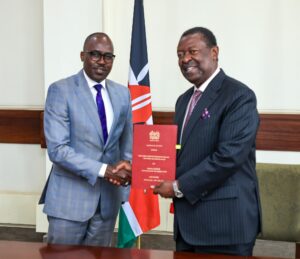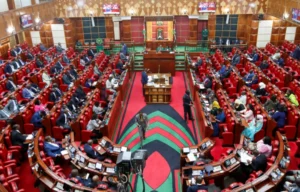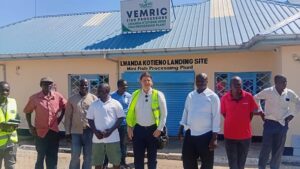Uasin Gishu Ranked Most Business-Friendly County in 2025 VIFFA Report
VIFFA Consult advised counties to regionalize payments for CESS in regional blocs as a way of minimizing compliance costs as well as boosting inter-county trade

The County Business Support Index is aligned with the Bottom-Up Economic Transformation Agenda (BETA) of the government and Medium-Term Plan IV. Photo/ Courtesy
Uasin Gishu County was ranked Kenya’s most business-friendly county, the 2025 County Business Support Index (CBSI) released by VIFFA Consult discovered. The survey, launched on October 21, 2025, evaluated the ease of doing business in 15 counties based on how well they support Micro, Small, and Medium Enterprises (MSMEs) and start-ups.
The in-depth analysis considered a variety of factors including licensing fees, availability of SME support initiatives, infrastructure investment, and policy framework. Data were drawn from reliable sources such as the Kenya National Bureau of Statistics (KNBS), County Finance Acts, and Annual Development Plans for the 2025/26 and 2026/27 financial years.
Top and Low Performing Counties consisted
Following Uasin Gishu in position were Machakos and Nairobi, which took the second and third positions respectively. Nakuru and Bungoma counties placed on the top five list of most business-friendly areas. Kisii, Kakamega, Nyandarua, Kajiado, and Makueni, on the other hand, were identified as the least performing counties in supporting business and investment preparedness.
A representative of VIFFA Consult stated that the CBSI report is intended to be an open and standardized method for assessing the manner in which counties promote entrepreneurship. “The CBSI 2025 provides a fair assessment of how far counties are going in enabling business growth. It encourages accountability, competition, and evidence-based decision-making by private and public actors,” they added.
Alignment with National Economic Goals
The County Business Support Index is aligned with the Bottom-Up Economic Transformation Agenda (BETA) of the government and Medium-Term Plan IV. It aims to promote MSME competitiveness and act as a policy guide for investors and policymakers. By indicating areas of strength and areas for improvement, the CBSI allows counties to come up with specific interventions in developing their respective local economies.
Sectoral Highlights and Policy Recommendations
Among the sectoral rankings, Machakos County led in general trade, followed by Nyeri, Nairobi, Uasin Gishu, and Kiambu. Nyeri led in industrial plant and workshop licensing, followed by Machakos, Nakuru, Bungoma, and Murang’a.
The report quoted issues persisting with SMEs such as fewer opportunities for access to finance and high loan defaults. It recommended consolidation of credit guarantee schemes with partnership from the national government and financial institutions to help ensure easier access to credit.
In addition, VIFFA Consult advised counties to regionalize payments for CESS in regional blocs as a way of minimizing compliance costs as well as boosting inter-county trade. The report further urged counties to strengthen cooperation with national investment institutions like KENINVEST and KEPROBA to advance local business development to regional and global markets.
Conclusion: Counties as Catalysts for Growth
The CBSI 2025 emphasizes that counties are at the helm of Kenya’s economic revolution. Through adopting open, competitive, and evidence-based approaches, they can create a conducive environment for MSMEs to thrive. The findings of the report put counties at the heart of inclusive and sustainable economic growth and provide a new benchmark for measuring Kenya’s vibrant business ecosystems.








